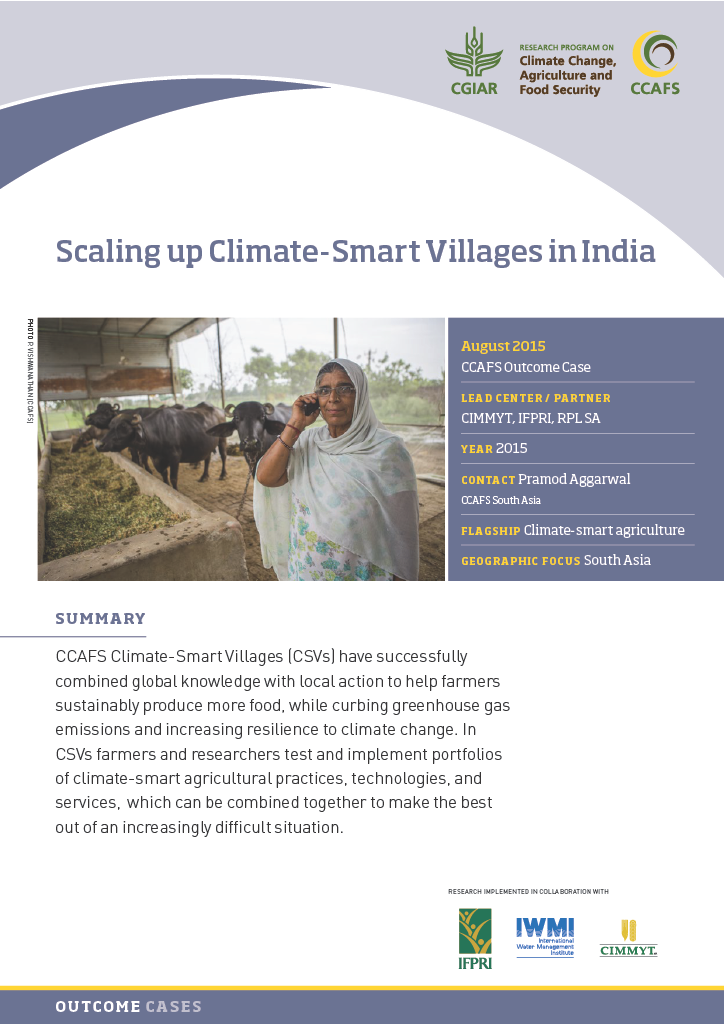This publication highlights the success of CCAFS Climate-Smart Villages (CSVs) in India, where farmers and researchers collaborate to implement climate-smart agricultural practices.
In Haryana state, farmers have adopted techniques like laser-land leveling and alternate wetting and drying of rice, resulting in reduced water usage, improved soil health, and economic benefits.
The State Government of Haryana has initiated a program to establish 500 additional CSVs in rice-wheat systems facilitated by integrated investments from the Department of Agriculture. Climate-smart Villages in India are gaining traction nationwide, with proposals to develop CSVs in five other Indian states.
This case study was retrieved from the Consortium of International Agricultural Research Centers (CGIAR) and was published in August 2015.
In South Asia, the project focused on Kuhlna, Barishul, Sylhet (Bangladesh), Rupandehi, Mahotari, Nawalparasi, Dang, Barisal, Gorkha (Nepal), Haryana, Bihar, Punjab, Andra Pradesh and Karnataka (India).
Recent Updates:
In August 2015, CGIAR also published a workshop report on Climate Smart Villages in Ludhiana, India. This 3-day workshop convened nearly 50 representatives from Climate-Smart Village-related Flagship projects across Latin America, Africa, Asia and South Asia to share experiences and foster learning and exchange to define a common vision of what CSVs are, their purpose to CCAFS and its partners, and direction moving forward.
Help SAR-Climate keep this document page accurate and updated by suggesting an edit or any corrections here.

